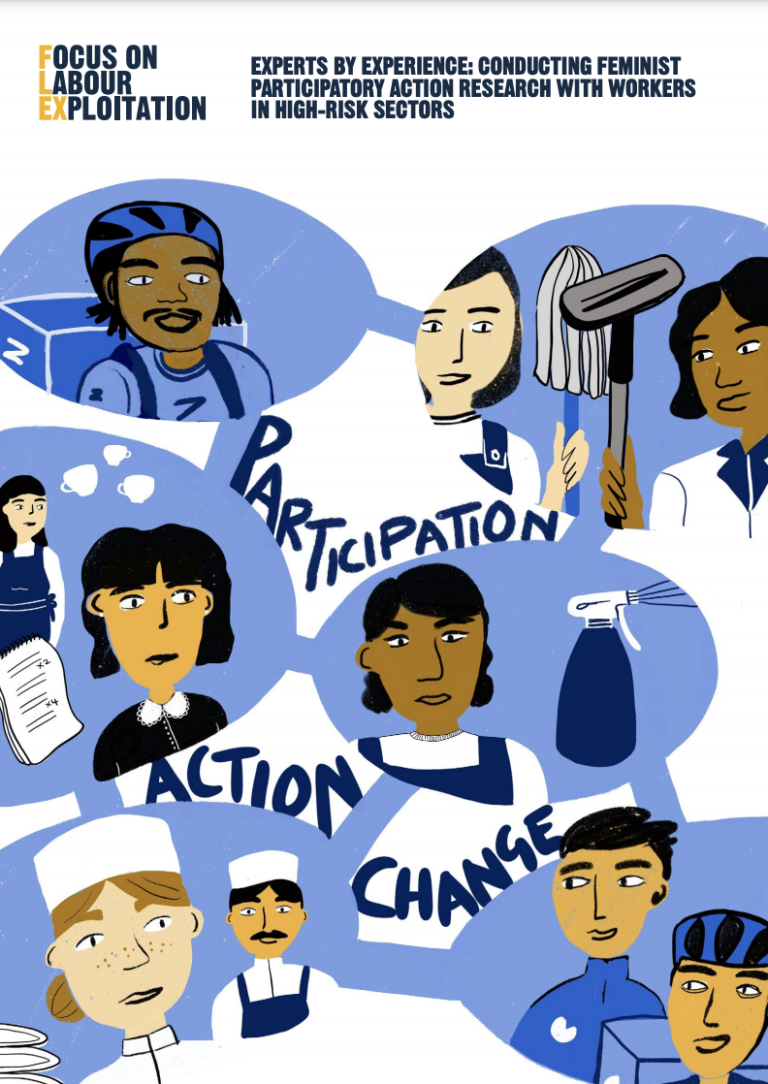The purpose of this guide is twofold. The first is to document lessons learned from using Feminist Participatory Action Research (FPAR) to study the experiences and drivers of labour exploitation – and advocate for change – with workers from three High-Risk sectors in the UK.
The second purpose of this guide is to provide a sounding board for those interested in or already applying FPAR in their own work. FPAR is a research approach rather than a methodology, and how it is done in practice will depend on the context and circumstances it is being applied in. This is therefore not a definitive guide on ‘how to do FPAR’, but an account of how we have done it in our specific context – the challenges we faced, how we adapted, the ethical considerations made, what worked, and what we might do differently next time.
Doing participatory research is a process of continuous learning about power sharing, and we are still on that journey. The authors hope this guide will provide others with a chance to reflect on their own processes. In this guide, the authors draw on project observations, insights from academic literature, conversations with stakeholders and, of course, the perspectives of workers themselves. The authors discuss the benefits and challenges of FPAR and propose some practical tools and solutions.

